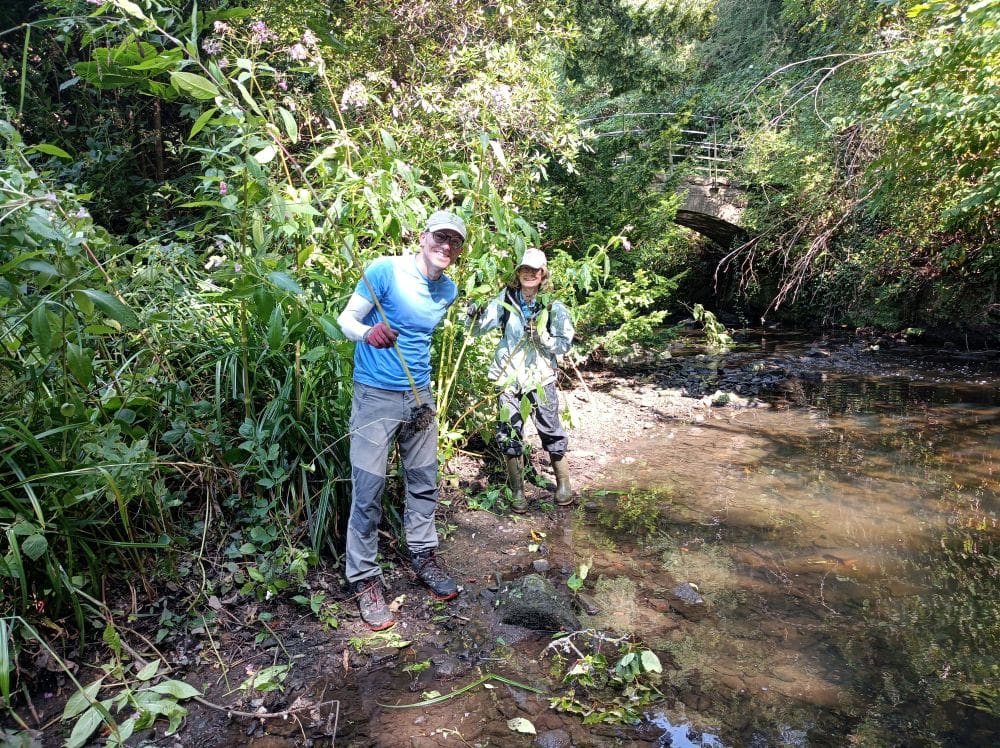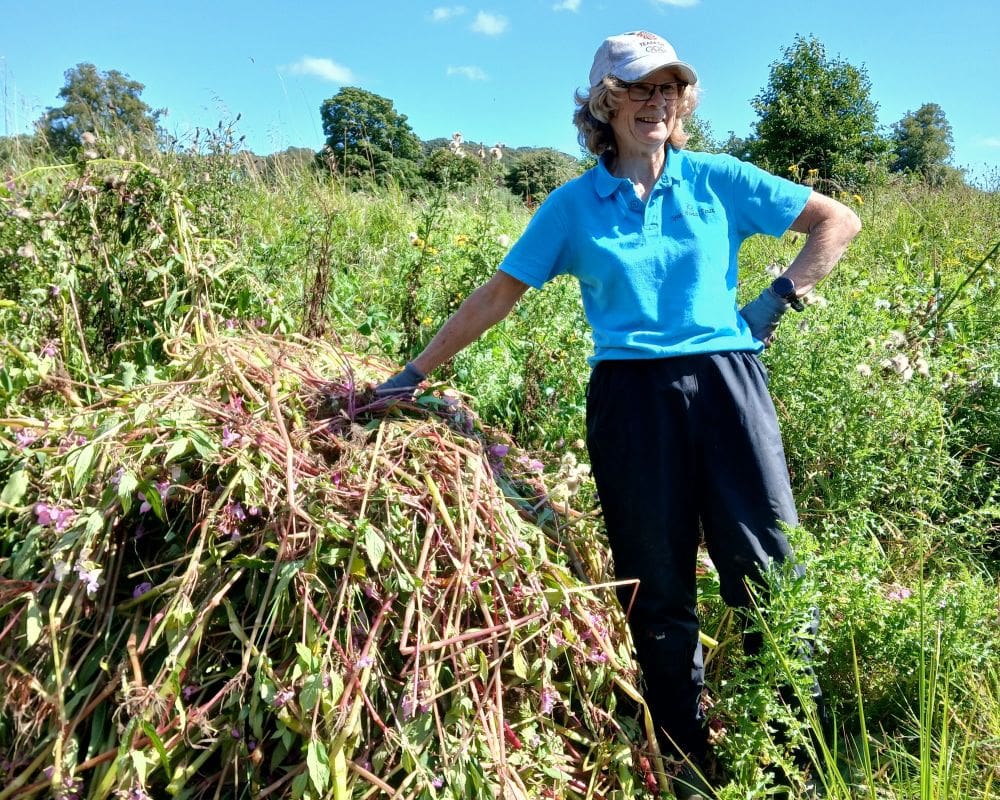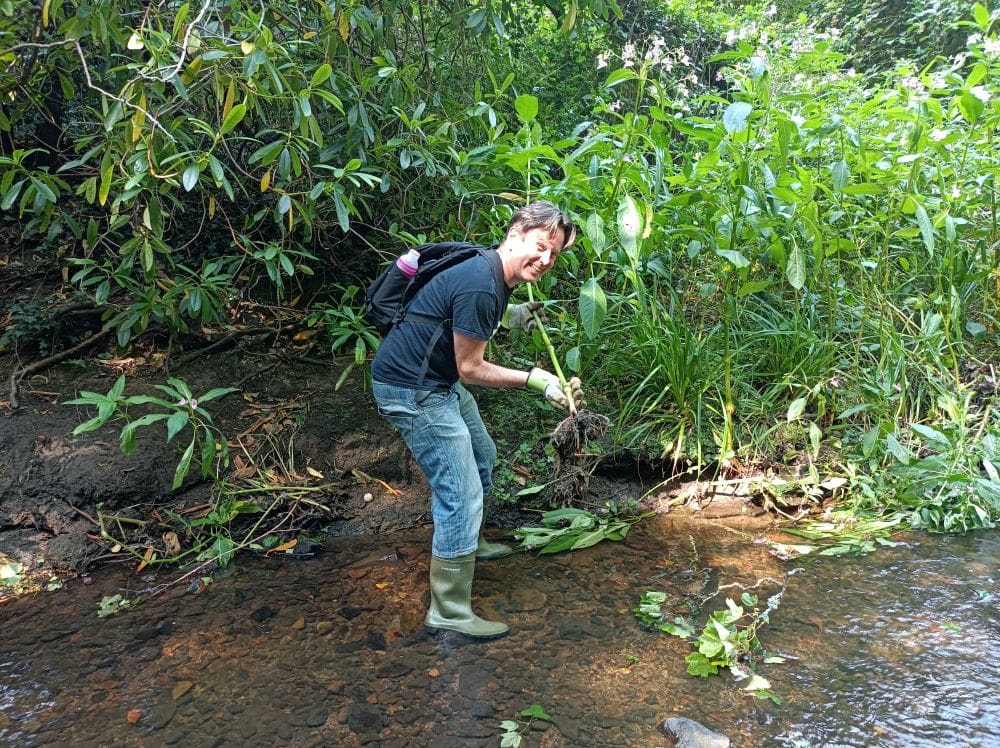Volunteers put in over 700 hours to combat invasive plants on the Tyne
Our trusty volunteers have continued their annual battle against an invasive species across the catchment of the Tyne.

This year, teams of volunteers working with our volunteer coordinators, Carol and Jenny, covered over 11km of river whilst clearing Himalayan balsam, a non-native plant first imported to the UK by Victorians in the mid-1800s.
Jenny Dowden, Volunteer Co-ordinator for Tyne Rivers Trust said, “Himalayan Balsam has no natural rivals and can quickly outcompete native plants, spreading rapidly and causing erosion along waterways. By taking over large areas, it wipes out everything else leading to a significant decrease in the variety of plant and animal life in an area. And the problem for our rivers is that balsam dies off every year, leaving riverbanks bare and susceptible to aggravated erosion, worsening the impacts of flooding.”

The plant, which can be recognised by its bright pink flowers, can grow 10ft (3m) in one season in the UK, with each plant producing up to 700 seeds.
Each year, between April and September, volunteers for the Tyne Rivers Trust meet up to combat Himalayan balsam and a range of other invasive plants. This year they have spent over 700 hours tackling Himalayan balsam, giant hogweed, American skunk cabbage and will be dealing with Japanese knotweed in the Autumn.

Victoria Coombes is a volunteer whose day job is working for Everyturn Mental Health. She said, “Every year we get two volunteering days to use and some of us from the team thought it would be a good way to get outside, give us something physical to do, spend some time together and make a positive difference to the environment.”
Jenny added, “As always, we are extremely grateful to our volunteers. We couldn’t deliver all of what we need to do without the vital support of volunteers. When they are not tackling invasive species, they help us with planting trees, installing leaky dams, monitoring water quality and fundraising. Volunteering is a great benefit to our rivers, the environment and each person’s own health and wellbeing.”


